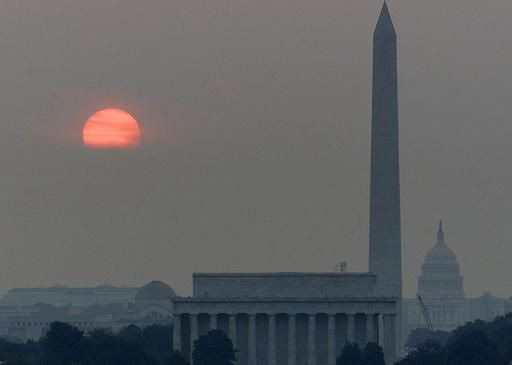Americans Want US Government To 'Mind Its Own Business Internationally,' But They Still Want Global Economic Engagement: Pew Research Center

Most Americans think boosting employment should be the U.S. government's main priority, not seeking to solve international problems, according to a newly-released study by the Pew Research Center. The one exception to the American public's view is its belief that Washington should promote closer trade and business ties with global economies.
Pew's "America's Place in the World" study showed that the American public thinks the U.S. is much less powerful than it was 10 years ago and that it should "mind its own business internationally." But that same public also is positive about U.S. global economic engagement.
"They see the benefits of greater involvement in the global economy," wrote CFR Senior Vice President James L. Lindsay in his analysis of the results.
Meanwhile, the study shows that government officials, corporate executives, scholars and foreign policy experts, such as those at the prestigious Council of Foreign Relations, have a different, and slightly more grim, view of global economic issues.
Researchers interviewed a sample of more than 2,000 Americans in 50 states about their thoughts on U.S. politics and foreign policy. They also asked the same questions of 1,838 members of the Council on Foreign Relations (CFR), which is composed of scholars, business executives, journalists, lawyers and nonprofit professionals.
While the two groups held similar opinions in some areas, in many cases they didn't exactly see eye-to-eye.
"Many of the public's domestically oriented goals are not shared by most members of the Council of Foreign Relations," the report reads.
While 81 percent of the general public say jobs for Americans are a top priority, the same opinion shared by just 30 percent of CFR members. The CFR experts were also much more worried about climate change -- 57 percent said it should be a top priority, compared to just 33 percent of the general public.
Protecting Americans from terrorist attacks and stopping the spread of weapons of mass destriction had high rankings from both groups, while the importance of human rights and raising living standards in developing countries ranked similarly low for both.
One thing the public and CFR members agreed on is that they don't like Edward Snowden. Fully 55 percent of the public and 69 percent of CFR members say that his release of classified documents has harmed the public interest.
Meanwhile, the experts differ from the public on the benefits immigrants and foreign companies operating in the U.S.
About 96 percent of CFR members said that more people from other countries coming to the U.S. to work in high-skilled jobs, would be good for the economy. The general public was less enthusiastic -- only 46 percent agreed with the experts.
Almost all of the CFR members (96 percent) said that foreign companies setting up operations in the U.S. would help the American economy overall, compared to just 62 percent of the public.
The report shows that the CFR members are much more critical of Obama’s foreign policy than in the previous survey conducted in 2009.
It will be another four years before Pew conducts the same poll again.
© Copyright IBTimes 2024. All rights reserved.






















